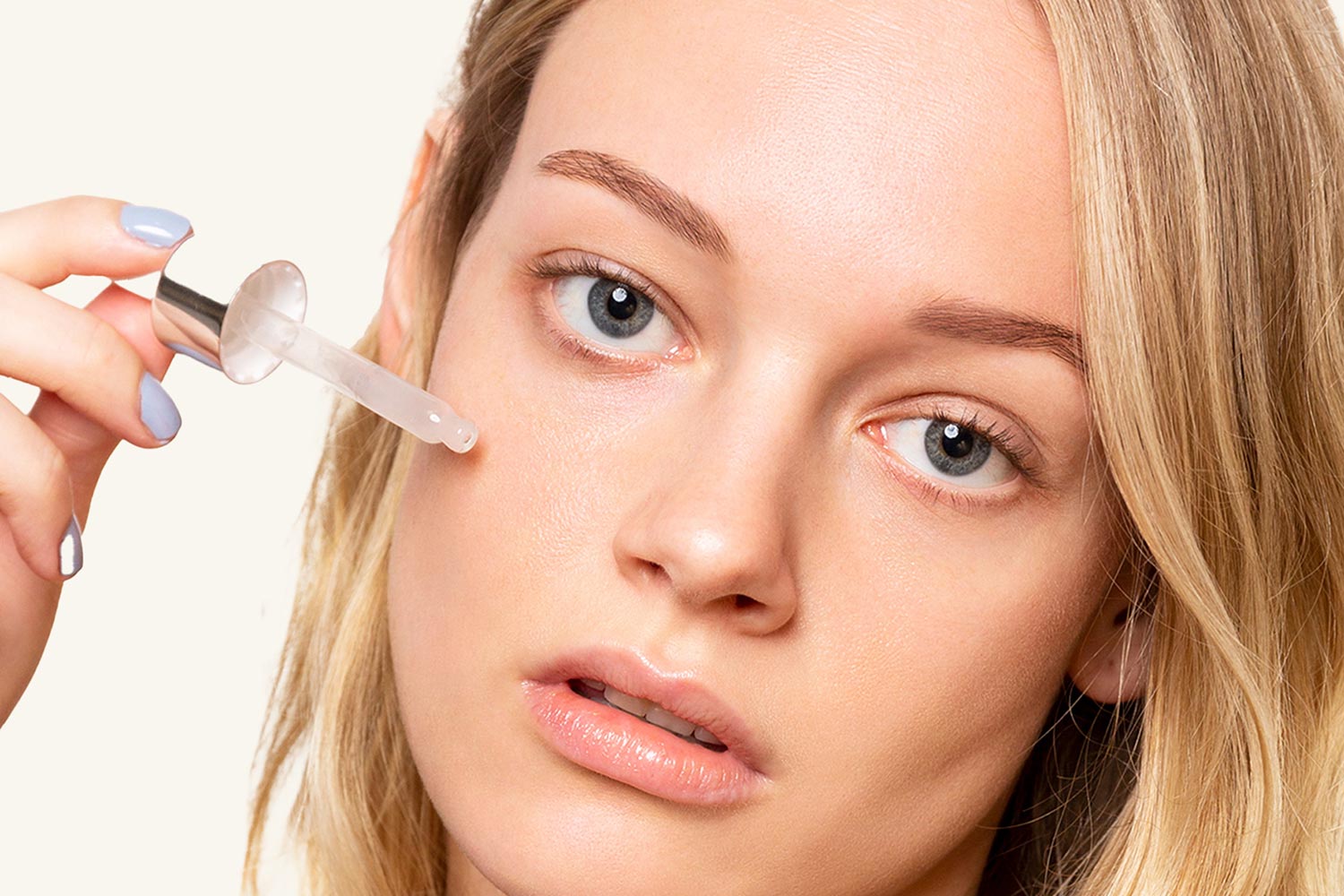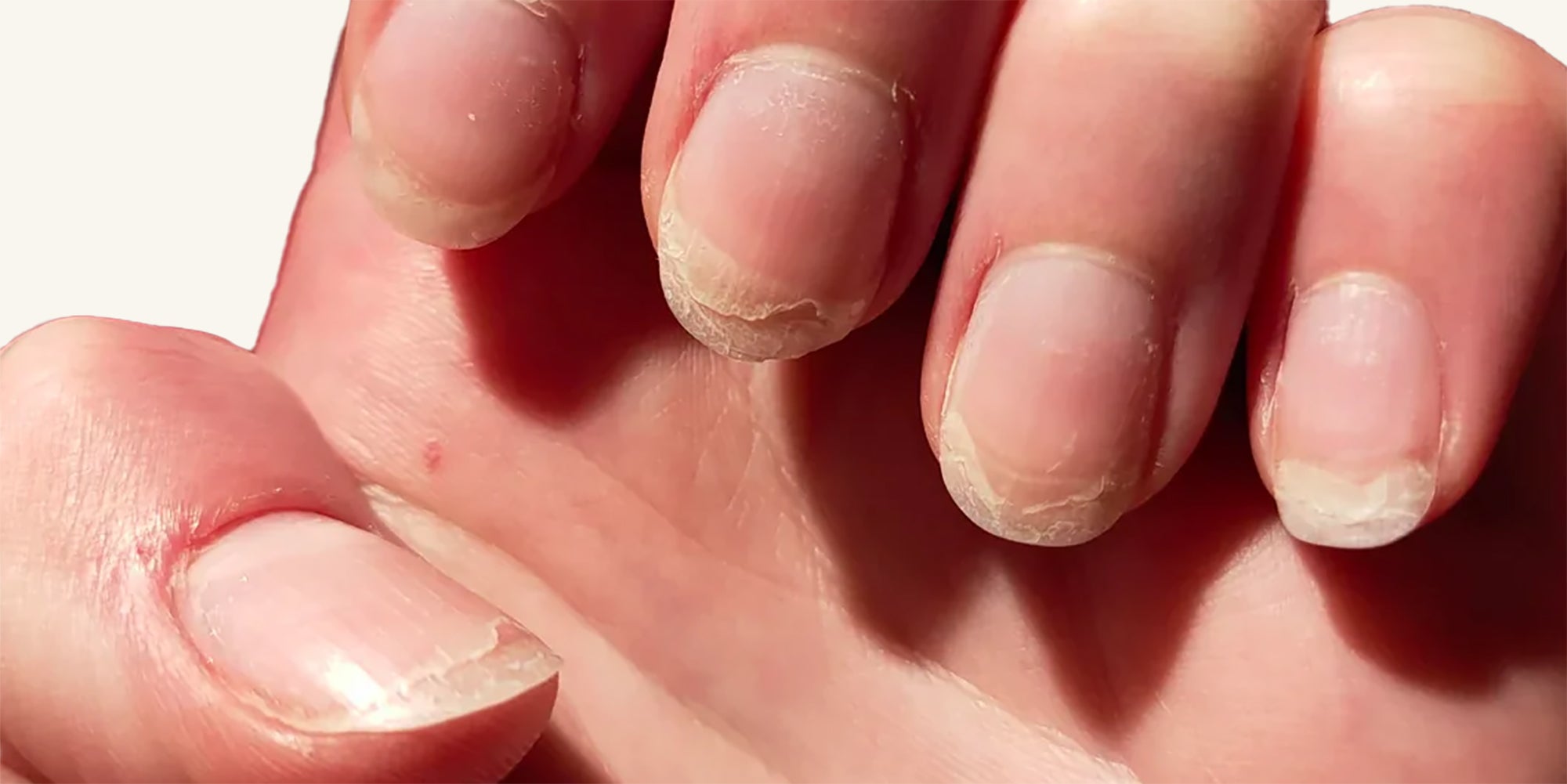Article: Peptides in Skincare: How to Support Firm, Resilient, Radiant Skin

Peptides in Skincare: How to Support Firm, Resilient, Radiant Skin
Peptides have become a quiet staple in research-driven skincare, especially for anyone noticing early fine lines, dehydration or loss of firmness. When formulated well, they help skin look smoother, stronger and more radiant over time.
At SCOUT, we pair clinically studied peptides with Australian superfoods and mindful, COSMOS-certified organic ingredients. Here’s how peptides actually work, what to look for, and how to weave them into your daily ritual.

Peptides in Skincare
- Peptides are short chains of amino acids that signal skin to make more collagen and elastin.
- They can help improve firmness, smooth fine lines and support the skin barrier.
- They work best in leave-on products like serums and moisturisers.
- They pair beautifully with niacinamide, antioxidants.
What Do Peptides Do in Skincare?
Peptides in skincare are short chains of amino acids that signal your skin to make more collagen and elastin, helping improve firmness, smooth fine lines and support a healthy skin barrier. Used daily in a leave-on serum, they can make skin look plumper, more hydrated and more resilient over time.
From your mid-20s to early 30s, natural collagen production starts to decline by around 1% per year. Over time this can lead to:
- Loss of firmness and elasticity
- Fine lines and wrinkles
- Thinner, more fragile skin
- Dullness and rough texture
Topical peptide serums are designed to support these natural repair processes – especially when paired with daily sun protection and a hydrating routine.
Image idea: Soft macro shot of luminous skin texture with a diffused Bondi sunrise backdrop, suggesting calm, healthy radiance.
How Do Peptides Work in a Skincare Routine?

Peptides used in skincare often act as “messengers”. Because they resemble fragments of broken-down collagen, they can signal to skin cells that repair and rebuilding are needed.
Clinical studies on bioactive peptides show they can help support collagen synthesis, improve elasticity and soften the look of wrinkles when used consistently over 8–12 weeks, alongside sunscreen and antioxidants (as reported in journals such as the Journal of Cosmetic Dermatology and the International Journal of Cosmetic Science).
What Types of Peptides Are Used in Skincare?
Not all peptides for skin are the same. Some key categories include:
Signal peptides
Encourage skin to produce more collagen, elastin and other structural proteins.
Carrier peptides
Deliver trace minerals involved in wound healing and collagen formation.
Enzyme inhibitor peptides
Slow enzymes that break down collagen and elastin, helping maintain firmness.
Neurotransmitter-inhibiting peptides
Gently soften the look of expression lines by reducing certain muscle contractions. Their effect is sometimes described as a soft, topical alternative to injectables.
You may also see specific complexes such as palmitoyl tripeptides, Matrixyl® synthe’6® or Perfection Peptide 7. These have been studied for their ability to smooth visible wrinkles, support barrier lipids and refine texture when used in leave-on formulas.
What Are the Benefits of Peptides for Skin?
While each peptide has its own focus, many share a core group of benefits that suit modern, stressed skin.

Stronger, More Resilient Skin Barrier
Your skin barrier protects you from pollution, bacteria, UV and irritants. Over-exfoliation, stress, lack of sleep and environmental aggressors can leave it compromised.
Peptides can help:
- Support the production of barrier lipids
- Enhance the skin’s own repair
processes
- Redu
ce feelings of tightness and discomfort
When combined with hydrating ingredients like hyaluronic acid and glycerin, peptides leave skin feelin
g cushioned, supple and more resilient.
Smoother Lines and Plumper-Looking Skin
Because peptides support collagen and elastin, they can help skin look firmer and more lifted over time. Research on collagen-stimulating peptides has shown improvements in wrinkle depth and elasticity with regular use and sun protection.
You may notice:
- Softer fine lines around the eyes and mouth
- Dehydration lines that look more “filled in”
- Skin that feels bouncier and more elastic
- Calmer, More Even-Looking Complexion
Daily life exposes us to pollution, UV and blue light, all of which create free radicals and may trigger inflammation.
Peptide serums that also contain antioxidants such as green tea, niacinamide and ginseng can help:
- Soothe visible redness
- Reduce feelings of sensitivity
- Support a more even, luminous tone
- Better Hydration, Glow and Dewiness
As collagen declines, skin can lose water and appear dull. Some peptide complexes are associated with increased hyaluronic acid production and improved water retention in the skin’s deeper layers.
Hyaluronic acid is a key part of the skin’s support structure and is central to that plump, hydrated, “glass-skin” look many of us love.
How Do I Choose and Use Peptides in My Skincare Routine?
With so many peptide products available, it helps to be selective, and value driven.
How to Choose a Good Peptide Serum?
Look for a leave-on formula:
- Serums and moisturisers are ideal.
- Cleansers are rinsed away too quickly for peptides to be effective.
Seek supportive co-ingredients:
- Niacinamide (Vitamin B3) to refine pores, support the barrier and brighten tone.
- Antioxidants like Kakadu Plum, organic green tea and ginseng to help neutralise free radicals.
- Hydrators such as hyaluronic acid, aloe and glycerin to maintain moisture.
Be careful with strong acids:
- High-strength AHAs in the same step may reduce peptide efficacy.
- If you use exfoliating acids, apply them in a different routine (e.g. alternate nights) or best leave exfoliation to cleansers.
How to Layer Peptides Step-by-Step
A simple peptide-friendly ritual might look like:
- Gentle cleanser
- Hydrating mist or essence (optional)
- Peptide serum on clean, dry skin
- Moisturiser to seal in hydration
- Broad-spectrum SPF in the morning
Most skin types can use peptides once or twice daily. Adjust frequency if you are also using retinoids or other strong actives.
Explore our Organic Serums & Oils and Hydrating Skincare Range for barrier-supportive, peptide-friendly options.
How Does SCOUT Cell Renewal Peptide Serum Fit Into My Routine?
Our Cell Renewal Peptide Serum with Green Tea, Ginseng and Fig brings together research-backed peptides and Australian organic skincare in one elegant step.
It features:
Perfection Peptide 7 and Matrixyl® synthe’6®
To support collagen production, smooth the look of deeper wrinkles and replenish the skin’s lipid layer for refined, more even texture.
Niacinamide (Vitamin B3)
To reinvigorate healthy tone, visibly minimise pores and encourage a plump, youthful glow.
Organic Green Tea, Ginseng and Fig Extracts

Rich in antioxidants, they help defend against environmental stressors and early signs of ageing such as fine lines, pigmentation and roughness.
This vegan, cruelty-free peptide serum is housed in considered, sustainable packaging and crafted with COSMOS-certified organic ingredients where possible. It feels silky, absorbs quickly and leaves skin comfortably plump with a soft, dewy radiance.
To use, press a few drops into cleansed face, neck and décolletage, then follow with your chosen moisturiser and SPF in the morning.
Discover our [Cell Renewal Peptide Serum] and experience a mindful, research-driven ritual that honours both your skin and the planet.
Peptide Skincare FAQs
How long do peptides take to work on skin?
Most people notice softer, more hydrated skin within 2–4 weeks. Visible changes in firmness and fine lines usually appear after 8–12 weeks of consistent use, especially when paired with daily SPF and a gentle, hydrating routine.
Can I use peptides with retinol?
Yes. Peptides and retinol can complement each other. Peptides help support the barrier and replenish collagen, which can make a retinol routine feel more comfortable. Apply your peptide serum first, then moisturiser, and introduce retinol slowly or switch to a natural retinol alternative like Bakuchiol.
Are peptides safe for sensitive skin?
Many peptide serums are suitable for sensitive or reactive skin, particularly when they are fragrance-free and combined with calming ingredients like niacinamide, green tea and ceramides. Always patch-test first and introduce new products gradually.
Do peptides replace collagen supplements?
No. Topical peptides and collagen supplements work in different ways. A peptide serum works on the skin surface and upper layers, while supplements act from within. If you choose to take collagen or focus on collagen-supporting foods, pairing them with a topical peptide serum and daily SPF offers a more holistic approach.
Should I use peptides in the morning or at night?
You can use peptides in the morning, at night or both. Morning use pairs well with antioxidants and SPF for daily defence; evening use works with your skin’s natural overnight repair rhythm.
Are peptides okay during pregnancy or breastfeeding?
Many peptide products are considered gentle options, but every formula is different. Always check ingredient lists and speak with your healthcare provider or dermatologist for personalised advice.

A Mindful, Research-Led Way to Age Well
Peptides aren’t about chasing perfection. They
are quiet, consistent helpers that support your skin’s own intelligence. When combined with sun protection, hydration and a nutrient-rich lifestyle, they can help your complexion feel stronger, smoother and more radiant at every age.
If you’re ready to explore peptides in a clean, Australian organic beauty context, discover our [Cell Renewal Peptide Serum] and the wider SCOUT [Organic Serums & Oils] collection to create a ritual that feels as beautiful as it looks.
What’s the Difference Between Peptides and Exosomes in Skincare?
As skincare becomes more high-tech, you’ll often see both peptides and exosomes mentioned in the same conversation. They sound similar, but they’re quite different in how they work, how well they’re studied, and how they fit into a clean, mindful routine.
Peptides: Targeted “Messenger” Molecules
Peptides are short chains of amino acids – tiny fragments of proteins like collagen and elastin.
In skincare, they:
- Act as messengers, signalling skin to support collagen, elastin and barrier repair
- Are lab-designed and very precisely formulated
- Can be made vegan and cruelty-free, aligning well with SCOUT values
- Are supported by a growing body of cosmetic research for firmness, wrinkle reduction and barrier support
Think of peptides as small, predictable tools that “remind” your skin to keep doing the things it does naturally, just more efficiently and consistently.
Exosomes: Tiny Communication Vesicles
Exosomes are microscopic vesicles (little bubbles) that cells release to communicate with each other. They can carry proteins, lipids and genetic material (like RNA) between cells.
In aesthetic and regenerative medicine, exosomes are being explored for their potential to:
- Influence cell behaviour and repair pathways
- Support wound healing and regeneration in controlled settings
In skincare marketing, you’ll often see claims about stem-cell exosomes or growth factor exosomes. However:
- Many exosome products are still emerging and less standardised
- Sources can be animal or human-cell derived, which may conflict with vegan, cruelty-free or COSMOS-style standards
- Long-term safety, regulation and consistency in topical consumer products are still evolving
For a mindful consumer, exosomes sit in a more experimental, “clinical-adjacent” space rather than a fully established cosmetic active.
Peptides vs Exosomes: A Simple Comparison
Structure
Peptides: Short, defined chains of amino acids
Exosomes: Tiny vesicles that carry many different molecules
How they work
Peptides: Send specific, targeted signals (e.g. “support collagen”, “boost barrier lipids”)
Exosomes: Broader cell-to-cell communication tools still being researched in cosmetic use
Evidence in everyday skincare
Peptides: Backed by multiple cosmetic studies for wrinkle appearance, firmness and hydration when used consistently
Exosomes: Promising in early research and clinical settings, but less standardised and more complex in over-the-counter beauty products
Fit with clean, ethical, vegan beauty
Peptides: Can be created in a controlled, vegan, cruelty-free way
Exosomes: Often derived from animal or human cells, which may not align with all ethical or regulatory frameworks
Where SCOUT Sits: Peptides First, Mindful Science Always
At SCOUT, we currently focus on research-backed peptides combined with Australian superfoods, antioxidants and COSMOS-style organic ingredients where possible, because they:
- Offer predictable, targeted benefits for firmness, barrier health and radiance
- Can be formulated to remain vegan, cruelty-free and aligned with our sustainability values
- Fit comfortably within cosmetic regulations, without stepping into medical or invasive territory
Exosomes remain an interesting area of scientific exploration, and one we are exploring, but for a premium yet accessible routine that honours both skin and planet, peptide serums like our Cell Renewal Peptide Serum offer a more transparent, well-established path.
References
Reviews on bioactive peptides and collagen support in cosmetic skincare, Journal of Cosmetic Dermatology (2017–2022).
Studies on matrikine peptides and wrinkle appearance, International Journal of Cosmetic Science (2015–2021).
Hyaluronic acid and skin hydration in topical formulations, Dermato-Endocrinology and related dermatology journals (2014–2020).


